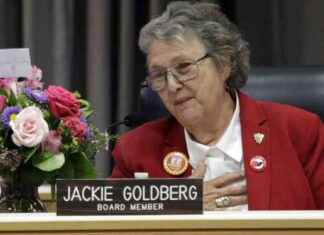Several documentaries have addressed the issue of “children of Creuse” in recent years since in 2014 a resolution of the National Assembly recognized the “moral responsibility” of the State in the “transfer” of at least 2,150 minors. , torn from their native island of Reunion then distributed across 83 French departments, between 1962 and 1984.
Since then, an information and historical research commission submitted a report to the Minister for Overseas Territories in April 2018, establishing these latest figures. The sociologist Philippe Vitale, the geographer Wilfrid Bertile and the historian Gilles Gauvin were members of this commission. We find all three of them in the Alice Cohen film proposed by France 5. But this time, it is not only a question of this state scandal, but of a whole “policy which tells France in its report to the territory which founded it and to the unspoken words of colonization”.
History of a system
It is therefore the story of an island and a man – Michel Debré, who was a deputy (between 1963 and 1968 and 1973 and 1988) – but also the story of a nation and a system whose “the echo still resonates today” synthesized by this good historical documentary, made of archive images and insights provided by numerous and varied specialists on these issues, including the historians Ivan Jablonka and Raoul Lucas .
They trace the colonial past and the brutal modernization of the island, in the context of decolonization on the African continent. Gaullist figures like Michel Debré decided to tighten their grip on certain territories, including Reunion, where his communist adversaries had been demanding autonomy since 1959.
While the “thirty glorious years” are in full swing in France, the Indian Ocean island is building its dams, schools, roads, and shifting from shanty towns to large complexes, from a colonial society to a consumer society in the bosom of Paris. In 1967, the film recalls, 60% of the population of Reunion was under 20 years old. The political and cultural elites are obsessed with demographic questions and Michel Debré will persist – sometimes against the State itself – in running a system of deportation to France of tens of thousands of Reunion Islanders via the Office for the development of migrations in the overseas departments (Bumidom), but also of abortions – to which the former Prime Minister of General de Gaulle is opposed for France – and forced sterilizations.
The historical demonstration is implacable: the demographic control policy led by Michel Debré, who describes it as “republican”, is not a paternalistic “drift”, but rather an assumed neocolonial political project.






